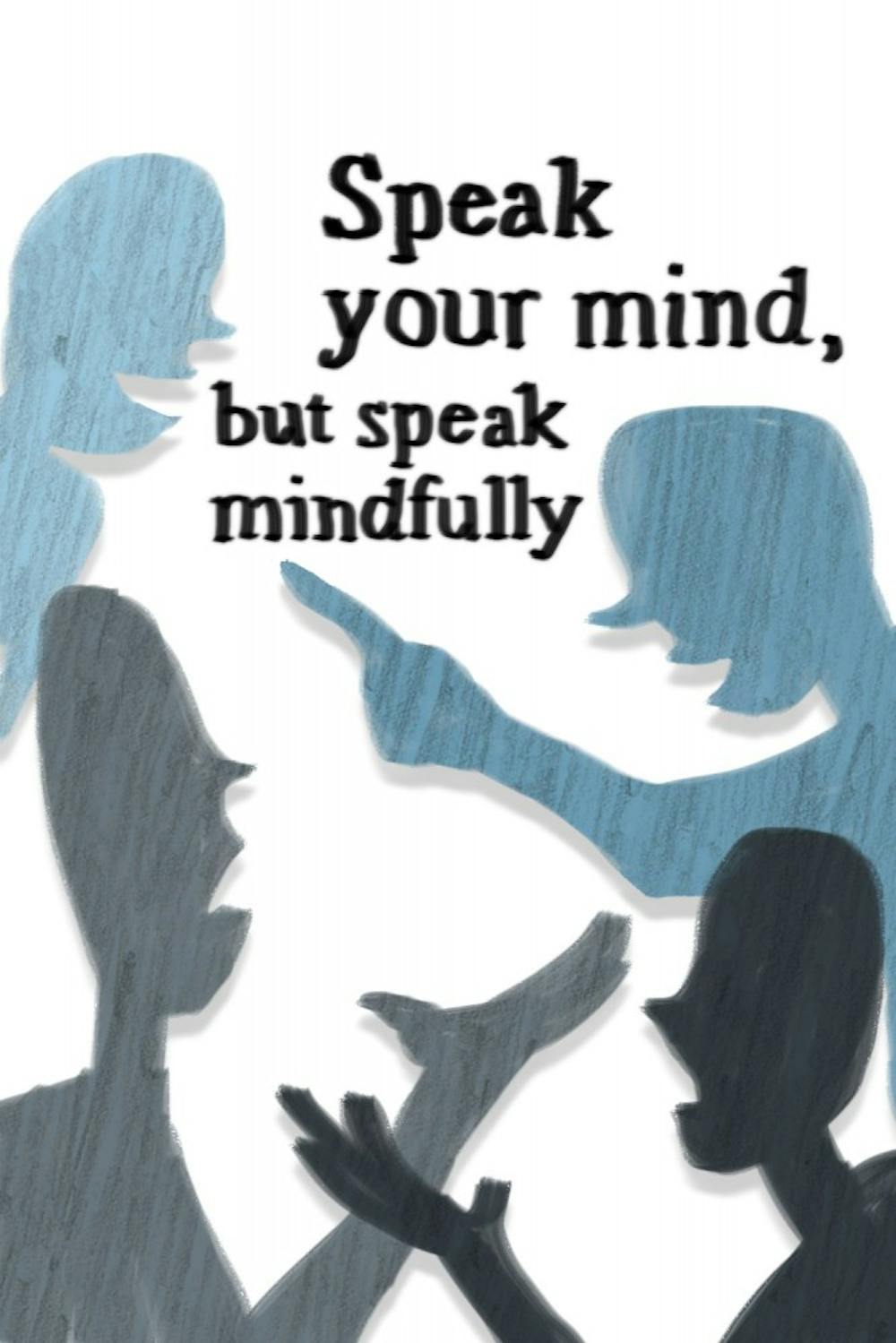There is nothing “political” about removing hateful speech from your everyday word choice. Using language that aims to respect everyone in our community is part of being a good citizen.
Today’s political climate has made speech a hot topic. Can words and speech be violent? Should we police those who use language as a weapon against minorities? Should we allow dialogue from all viewpoints on an issue?
These troubling and complex questions linger over college campuses like dark clouds.
And as a center for learning and growth for the future’s leaders, UNC often finds itself skating across some very gray and slippery ice.
Fortunately for individuals in the Chapel Hill community, we have choice over how we decide to treat words and language. Unlike UNC, our stance on speech is rarely under a magnifying glass, and we (generally speaking) don’t have to bend to any consciousness other than our own.
This freedom doesn’t mean you should be careless with your words. To use “gay” as a put-down in your everyday conversation is hateful and rude. To use “queer” as a pejorative speaks volumes on your inability to accept and respect people who aren’t like you. Someone’s sexuality or gender identity is not a curse word or a casual insult.
While free speech may be a contentious topic in your classes and conversations with coworkers, choosing to respect others with your speech should not be up for debate.




